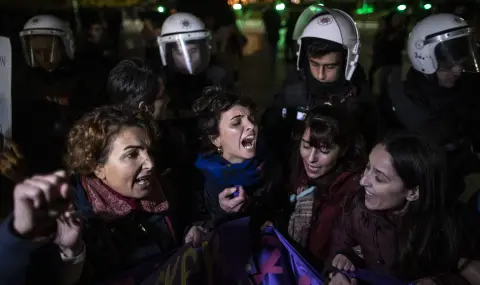The case of eight-year-old Narin is currently one of the hottest topics in the Turkish media. The girl had been searched for weeks before her body was discovered - stuffed into a sack and left on the bank of a river near her home village. This crime shook the whole of Turkey, and the silence of the people of the village, who are apparently covering up the perpetrator, caused a wave of indignation throughout the country.
So far, 12 people have been detained in the case, including the uncle of the murdered girl, in whose car DNA from the murdered child was found. According to forensic doctors, she was strangled. It is believed that there must be someone in the village who knows what happened, but everyone is silent.
There is a lack of preventive policies in Turkey
Narin is not an isolated case. According to the Turkish Center for Children's Rights (FISA), at least 64 children have been killed in the past two and a half years, often as a result of domestic violence. The center collects its data from publicly available sources. Since 2016, Turkish authorities have no longer published official data on killed or missing children. According to the latest published statistics, between 2008 and 2016, 104,531 children were reported missing across the country. It is not clear today how many of these children have been found later, alive or dead, nor how many new cases have been reported since 2016.
Experts criticize the lack of transparency and preventive policies in this area and call for the systematic collection and publication of information on missing children. "We need data so that we can propose a political solution to the problem", says FISA expert Ezgi Koman.
The UN Committee on the Rights of the Child has also been calling on the Turkish authorities for years to provide the relevant information. "If they really have data but are hiding it, it would mean that they do not want to be held accountable. Either they want to hide the seriousness of the situation. Or they simply do not care about the children," says Koman.
DV sent an inquiry on the subject to the Turkish Ministry of Family and the Central Statistical Authority (TUIK), but so far no response has been received. The opposition has also asked the government to provide information, including on how many children have gone missing in Turkey since 2016. Some sources say there have been more than 10,000 such cases. The 15-day deadline for a parliamentary question expired last Thursday - with no result. Burhanettin Bulut, an opposition politician from the Republican People's Party (CHP), called it a disgrace for the government.
"Children should be aware of their rights"
If such data were available, says criminalist Halis Dokgöz, forensic doctors, social workers, psychologists and police could develop preventive strategies to prevent such cases. "Right now, we don't know anything. We only follow up on a case after it becomes public. And when we do, we only care about who the killer is. That's not right," says Dokgöz. He believes that the authorities lack the motivation to develop sustainable solutions to prevent such cases.
Şahin Antakyağlıoğlu, coordinator of the Children's Rights Defenders Network, agrees. A publicly accessible warning system with all available data and a solution-oriented policy are needed. This includes, for example, an easily accessible helpline that all children can call, regardless of whether they live in the city or the countryside. We also need an "educational system that teaches children what rights they have", the human rights activist adds.
There is no point in "giving rights to a child if they don't know anything about them", says Antakyağlıoğlu. "Do we tell children where they can report if someone touches them? We need to start teaching them these things at preschool age. "Children should be able to understand when someone is forcing them to do something," the expert added.
If Turkey does not take steps in this direction, Turkish society will continue to be shaken by cases like that of eight-year-old Narin.
Author: Burak Yunveren
